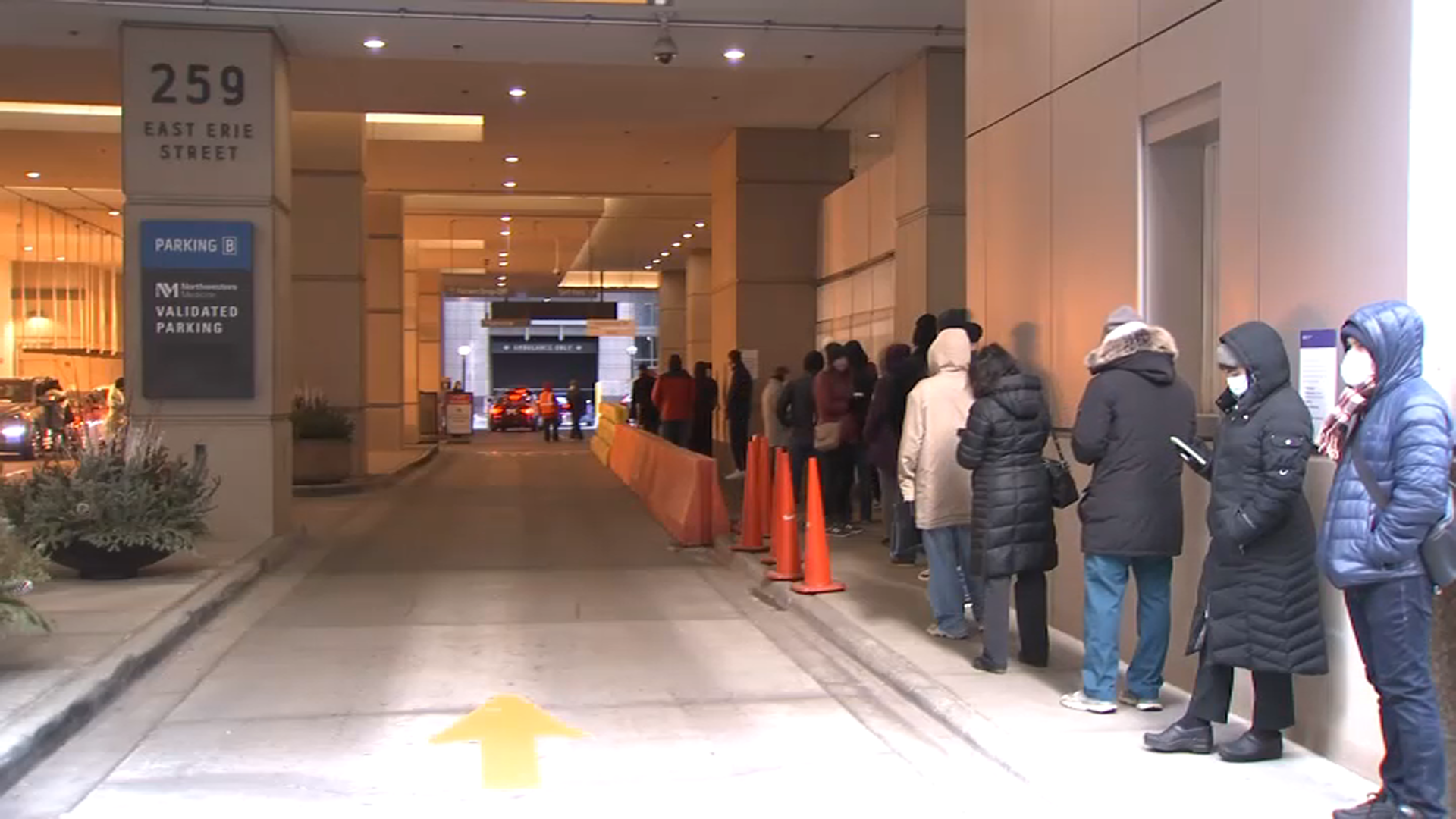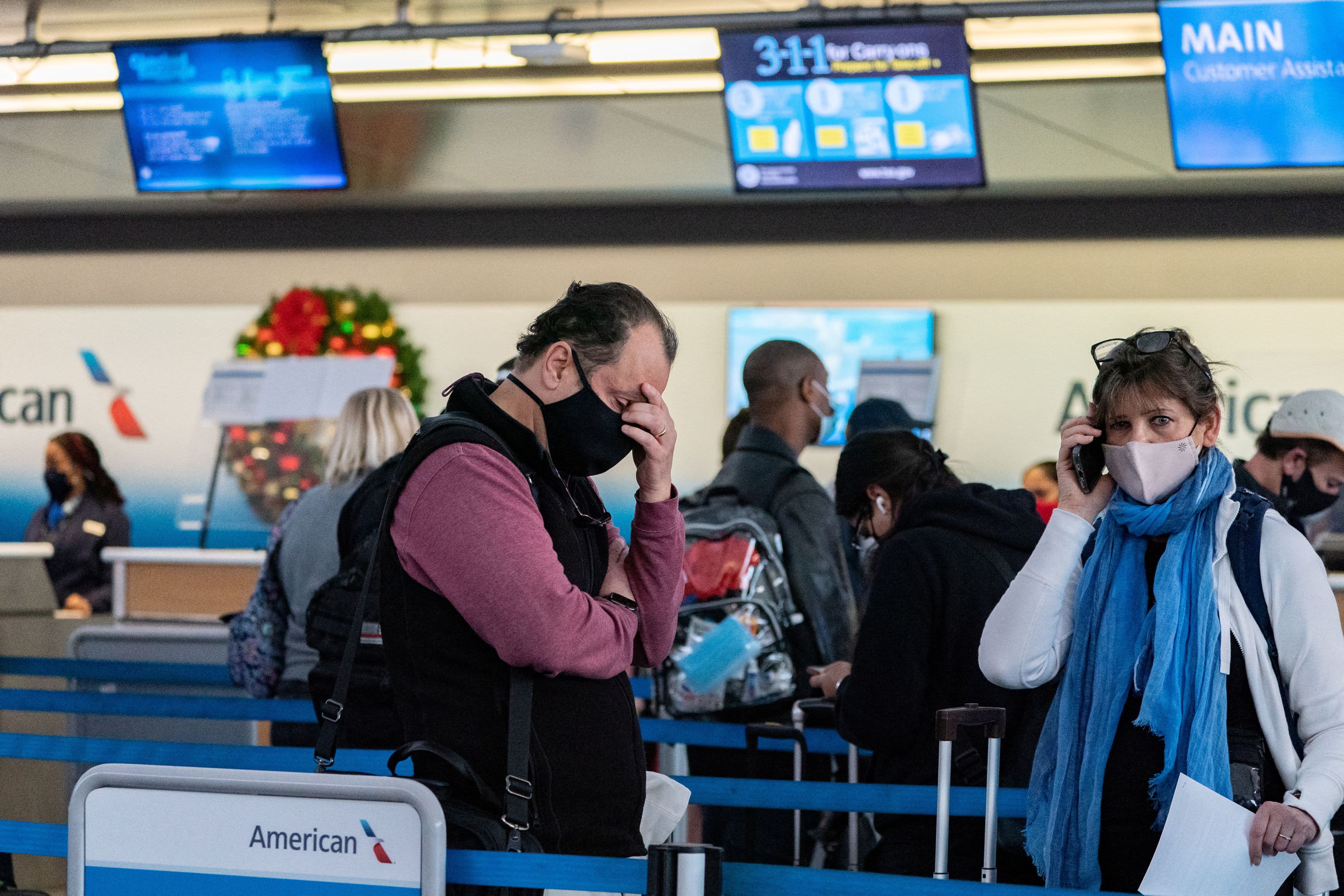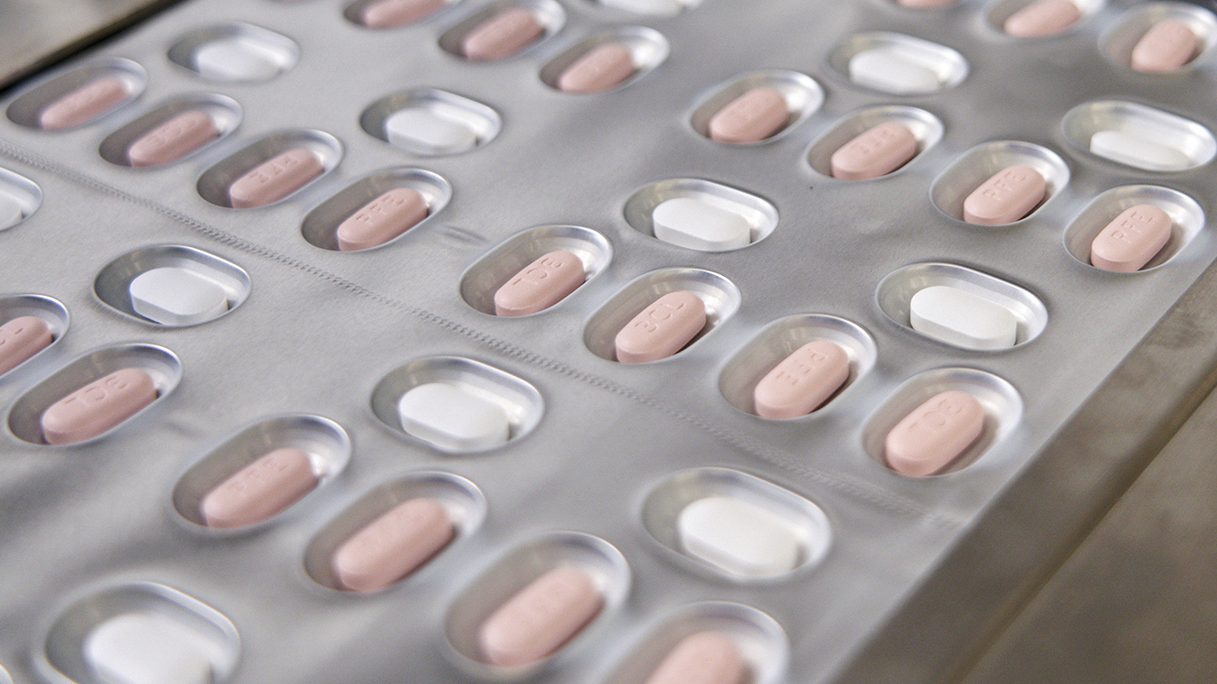What to Know
- NYC's new private-sector vaccine mandate takes effect Monday, requiring nearly 185,000 businesses to track vaccine proof for employees; in tandem, everyone aged 12 and up must show proof of full vaccination for indoor dining, fitness and entertainment
- The changes were intended as a combined preemptive strike against an omicron variant generating record COVID case surges locally and across the country; cases are milder than those linked to delta
- Still, the sheer volume of infections is decimating staffing resources across all industries and creating surging testing demand; seven new city-run testing sites open Monday and new state ones are planned
All private employers in New York City are subject to the mayor's vaccine mandate as of Monday, meaning they must require evidence of COVID-19 inoculation from all workers and have documentation ready for city inspection. It's the nation's first such vaccine requirement for a private-sector workforce.
At the same time, anyone aged 12 and up must now show proof of full vaccination to eat indoors at New York City restaurants or enter other indoor venues, like movie theaters, gyms or arenas. Kids aged 5 to 11 only need to show proof of one vaccine dose as part of an addendum to the mandate the city rolled out earlier this month.
The intensified COVID measures take effect as New York City and state find themselves immersed in an unprecedented wave of omicron variant-fueled virus infections smashing single-day pandemic case records on a near-daily basis. Statewide, hospitalizations are now at a 10-month high and rising quickly, though Mayor Bill de Blasio says local hospitals are "holding it together."
Get Tri-state area news delivered to your inbox. Sign up for NBC New York's News Headlines newsletter.
De Blasio first announced the looming mandate expansion on Dec. 6, four days after the state reported its first omicron case but well before the variant began to generate tens of thousands of new cases each day locally.
Amid some backlash at the time, de Blasio said the mandate was a necessary preemptive strike against the triple threat of omicron, as evidenced elsewhere around the globe, winter weather moving more people inside and the holidays.
On Monday he said he believes Mayor-elect Eric Adams will keep the mandate in place, even as Adams has hinted at taking a fresh look at the order once he takes office Saturday.
The compounded risks have matured into an ever-more jarring reality in the last two weeks, and virus rates are expected to continue to escalate for another few at least, local and national health leaders, including Dr. Anthony Fauci, have warned.
In New York City alone, the seven-day average positivity rate now stands above 15%, nearly quadruple what it was two weeks earlier. The rolling case average is up 108% over the average for the prior four weeks, Monday's data shows.
The rolling average hospitalization rate per 100,000 residents has quadrupled in just the last week, though it remains manageable from a patient perspective.
“Definitely some pressure on our hospitals, definitely a challenge, but much different than what we experienced in the past in terms of the impact that it’s having on people, and our hospitals are holding it together here in the city," De Blasio said at a news conference Monday.
The primary concern, officials say, is that omicron's rapid spread could decimate healthcare staff resources. Even if symptoms are mild, the infections take employees out of commission -- a challenge airlines have experienced with particular severity over the last few days. The MTA has been decimated, too.
Fauci underscored the point in an interview with CNN Monday, saying, "Yesterday we had 214,000 cases. Even with the diminution and severity we still could have a surge on hospitals, particularly among the unvaccinated, which they're really worried about."
The federal government has loosened its isolation window for healthcare staffers to seven days to mitigate staff shortages. In New York, which set a new pandemic case record of nearly 50,000 daily infections on Christmas Eve, Gov. Kathy Hochul slashed the quarantine period even more, to five days, for essential workers.
The CDC on Monday also issued new recommendations, cutting isolation restrictions for Americans who catch the coronavirus (vaccinated or not) from 10 to five days, and similarly shortening the time that close contacts need to quarantine. Vaccinated individuals with booster shots can skip quarantine if they wear masks in all settings for at least 10 days; everyone else can stop quarantine after five days if they wear masks in all settings for five days afterward.
The agency said evidence is growing that people are most infectious in the two days before and three days after COVID-19 symptoms develop. Hochul applauded the move.
While Hochul has had her own longstanding vaccine mandates in place, none compare in reach to the new private-sector vaccine mandate in the city. About 184,000 businesses are affected by it.
They must keep records of each worker's vaccine proof and secure intended second dose dates from those who have only gotten one so far. Employers aren't required to discipline or fire non-compliant workers, but they have to keep them out of the physical workplace.
Like earlier mandates, employees who have filed for exemption can stay on the job while their claims are processed. They would have had to file those reasonable accommodation requests prior to Monday, however.
Noncompliance with the mandate comes with fines up to $1,000 per violation and escalating penalties thereafter if violations persist. The city's goal, though, is to educate and work with businesses to help them comply with the order; de Blasio said imposing penalties will be a last resort. See the most frequently asked questions and answers on the mandate here.
“We have got to double down because one thing we can all agree on ... COVID is bad for humans, it’s bad for our health, but it’s also bad for business. And if we want to avoid shutdowns, and I believe we must, we need more and more people vaccinated," de Blasio said.
Some business owners and workers are planning a legal challenge, said Louis Gelormino, a Staten Island attorney. He said they'll argue the city is violating the constitutional rights of business owners and workers to make a living, and that New York City has no authority to impose vaccine mandates on private-sector companies, although such requirements already exist for restaurants, bars, theaters, gyms and other indoor gathering places.
More Coverage
Ultimately, officials say vaccinations will quell the increases in hospitalizations and deaths associated with the omicron wave -- and those metrics are a much greater concern for them than infections alone. That's why they're urging calm at this time -- and pushing vaccinations and COVID boosters for those who have to get them.
At this point, the city does not mandate proof of a booster dose, but de Blasio has suggested that could be on the table at some point should the situation warrant.
Data shows boosters multiply protection against the omicron variant especially. (The city launched a $100 booster incentive last week, and in five days de Blasio said 179,000 people had received them.)
With breakthrough infections ravaging everything from Broadway to restaurants to healthcare and other core industries, along with the city's plans for a "full strength" New Year's Eve in Times Square, the addition could come sooner rather than later.
Those breakthrough infections, along with the volume of others, have sparked a resurgence in COVID testing demand that has created lines and supply issues not seen since much earlier in the pandemic.
Seven city-run testing sites opened Monday to help accommodate the crash. In addition, Hochul announced two new state walk-in PCR testing sites at the Times Square-42nd St subway station from 8:00 a.m. to 2:00 p.m., and at Grand Central Terminal from 3:00 p.m. to 8:00 p.m.
The sites will be open seven days a week but close on New Year's Day. The governor also said another 13 state-run sites will launch on Wednesday, including a number in high-infection-rate parts of the city. Appointments open for scheduling Monday. See the full list of those new locations here.
"We are working to make testing as widely available and accessible as possible for New Yorkers," Hochul said in a statement. "These new walk-in testing opportunities at our MTA subway stations will provide greater testing access and support our efforts to keep ourselves and our loved ones safe during this winter surge."




